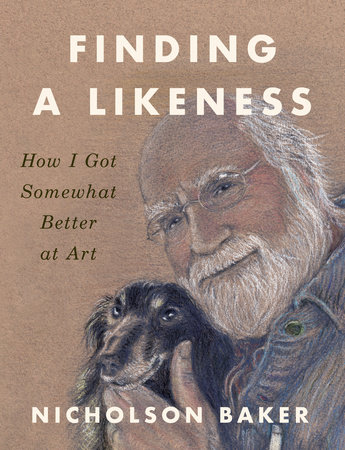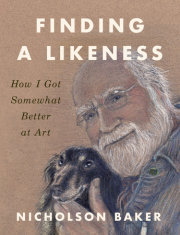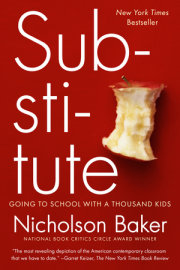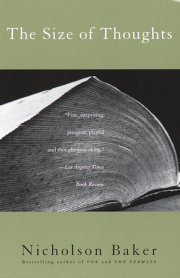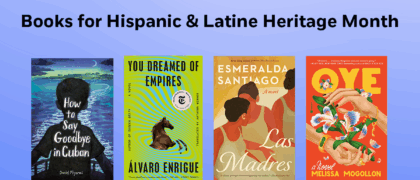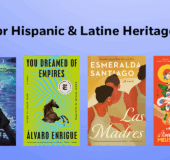Hi, this is me. Welcome to my book
Finding a Likeness. I recently traced this self-portrait with pen on a thick piece of paper taped to my computer screen. I live in Maine, near Bangor, with my wife, Margaret, and we have two grown children, Alice and Elias. I’m sixty-seven, and I write books for a living. My last book,
Baseless, was about horrible government programs that happened in secret a long time ago. When I finished writing it, in May 2019, I was wiped out. I needed a rehabilitation program. A less bleak way of looking at the world.
I already had a hobby: photography. I rented fast lenses and took photos witha wooden folding bellows camera, and a Bronica camera, and several digital cameras, and iPhones. Like everyone else, I’ve taken tens of thousands of pictures. They happen so fast: you stop, take the picture, move on. A stairway in our oldhouse, a tree near our new house, some leaf shadows, a bowl of cherries. Click, done.
Sometimes I’d look at the old photos and think, It’s not enough to take the picture. I want to scoop more, squeeze more, out of these images. I want to live more slowly through the snatches of past life they hold. Sometimes I thought, Maybe I could learn how to paint them?
Copyright © 2024 by Nicholson Baker. All rights reserved. No part of this excerpt may be reproduced or reprinted without permission in writing from the publisher.

